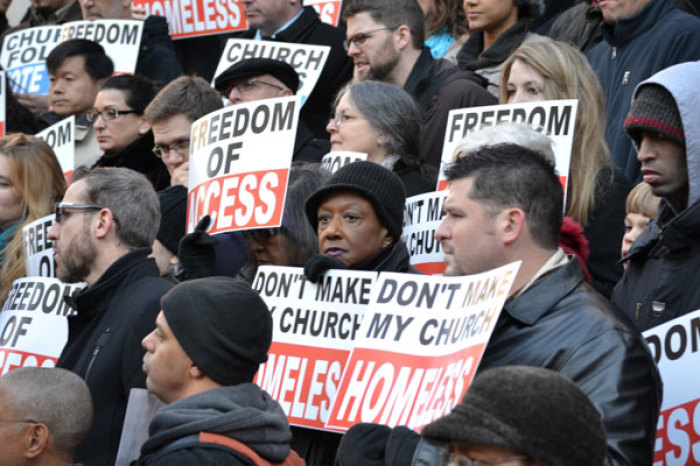Federal Appeals Court Upholds NYC's Ban on Worship Services at Public Schools
Bronx Household of Faith v. NYC Board of Education Case Finally Concluded After Decades-Long Battle?

An appeals court in New York City on Thursday ruled that the Board of Education was abiding by the law in prohibiting the Bronx Household of Faith from using public school facilities for worship services during off-hours.
The 2-1 vote, a reversal of a 2012 injunction against the city, comes amid a decades-long battle between church leaders and city officials. The plaintiff's attorneys say they are considering appealing, once more, to the Supreme Court.
Robert Hall, pastor of the Bronx Household of Faith, said he was "very sad" about the court's decision, according to the New York Daily News.
"This is about our rights. There seems to be an increasing attempt to marginalize Christianity in civilization," added Hall.
The Court of Appeals' decision potentially affects numerous other faith communities across New York City's five boroughs, although many Christian congregations share worship space at available churches on Sundays.
In its decision to reverse the 2012 permanent injunction ruling of Manhattan Federal Judge Loretta Preska, the three-judge panel concluded that "the Board's prohibition was consistent with its constitutional duties," and that Preska wrongly concluded that withholding permits for worship services at school facilities during off-hours was a violation of the Free Exercise and Establishment Religion Clauses of the First Amendment.
The judge who dissented in Thursday's ruling, John M. Walker, Jr., wrote in the decision that he was in favor of a permanent injunction against the Board of Education and suggested that a double-standard was being applied.
"In my view, the Board of Education's policy that disallows 'religious worship services' after hours in public schools — limited public fora that are otherwise open to all — violates the Free Exercise Clause because it plainly discriminates against religious belief and cannot be justified by a compelling government interest. I would affirm the district court's permanent injunction."
Alliance Defending Freedom, the legal group defending the Bronx Household of Faith in the case, suggested that the Court of Appeals' concluding argument was faulty in its interpretation of the law.
"The First Amendment prohibits New York City from singling out worship services and excluding them from empty school buildings," reads a response to the ruling by ADF Senior Counsel Jordan Lorence.
"The reason is because the buildings are generally available to all individuals and community groups for any activity 'pertaining to the welfare of the community.' There is no subsidy of churches here. Churches and religious groups pay the same uniform rates that everyone else does to use the schools. We are seriously considering an appeal in this case, either to all of the judges on the 2nd Circuit or to the U.S. Supreme Court." In 2011, ADF appealed to the Supreme Court to hear its case, but the court refused.
In its public response, the ADF offered a point-by-point challenge to the federal appeals court's decision, which can be viewed below, along with the court's full report.
Coming down on the side of the court's decision to grant the Board of Education's appeal, Donna Lieberman, executive director of the New York City Liberties Union, said it was "a victory for religious freedom," in a public statement.
"The Court of Appeals should be applauded for doing the right thing, and the Department of Education and the new administration should stand strong and prevent our public schools from being converted into churches." added Lieberman.
The case between the Bronx Household of Faith and the New York City Board of Education began in 1995 when Pastor Hall and the church sued to be allowed to hold Sunday worship services at a local school. The church has been in the process of building its own house of worship for years, and the project was reportedly near completion.
The three-panel court included judges Pierre N. Leval, Guido Calabresi and John M. Walker, Jr.
Read the court's decision below, as well as the response of ADF, the plaintiff's legal representatives, in the documents below.




























